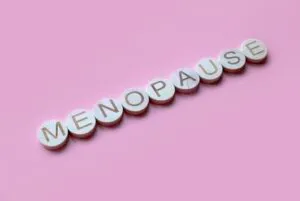Hormone replacement therapy is a medical treatment that involves replacing hormones that are no longer being produced in sufficient quantities by the body. It is commonly used to alleviate symptoms of menopause and andropause, as well as to address hormonal imbalances caused by thyroid disorders. Understanding hormone replacement therapy is important for those considering it, as it can greatly improve quality of life and overall health outcomes. In this article, we will explore what hormone replacement therapy is, how it works, the benefits it offers, who is a good candidate for it, the pros and cons of hormone replacement therapy compared to alternatives, different types of, hormone replacement therapy managing symptoms and reducing health risks associated with menopause and andropause, improving metabolism and energy levels in thyroid disorders, potential risks and side effects of , hormone replacement therapy working with healthcare providers to develop a personalized hormone replacement therapy plan, and the importance of seeking out more information and professional guidance.
Understanding Hormone Replacement Therapy: What is it and How Does it Work?
Hormone replacement therapy is a medical treatment that involves replacing hormones that are no longer being produced in sufficient quantities by the body. It is commonly used to alleviate symptoms of menopause and andropause, as well as to address hormonal imbalances caused by thyroid disorders. Hormone replacement therapy works by introducing hormones into the body to mimic the effects of the hormones that are no longer being produced naturally.
There are generally two categories of hormone replacement therapy. There is the traditional Synthetic form (commonly referred to as) and there is Bioidentical Hormone Replacement Therapy (B) or by another name Bio-Natural Hormone Replacement Therapy (BN). The difference is that synthetic compounds, some linked to adverse side effects because they are chemically different than what the body produces naturally. B or BN are compounded to form a chemical structure that most closely resembles human physiology. B/BN are known to have fewer side effects and are safer and more efficacious than traditional. For menopausal women, estrogen and progesterone are commonly used. Estrogen (in the form of Estradiol) helps alleviate symptoms such as hot flashes, night sweats, vaginal dryness, and mood swings. Progesterone is often prescribed in combination with estrogen to reduce the risk of uterine cancer. B/BN is also considered to be protective against breast cancer. In the case of andropause in men, testosterone replacement therapy (TRT) is used to address low testosterone levels. For individuals with thyroid disorders, synthetic thyroid hormones such as synthetic levothyroxine or natural desiccated thyroid medications are used to replace the hormones that the thyroid gland is not producing adequately.
The Benefits of Hormone Replacement Therapy: Improved Quality of Life and Health Outcomes
Hormone replacement therapy offers numerous benefits that can greatly improve quality of life and overall health outcomes. For menopausal women, hormone replacement therapy can alleviate symptoms such as hot flashes, night sweats, vaginal dryness, and mood swings. It can also help reduce the risk of osteoporosis and cardiovascular disease, which are more common in postmenopausal women. Additionally, hormone replacement therapy has been shown to improve mood and cognitive function in menopausal women.
Similarly, for men experiencing andropause, can help address low testosterone levels and alleviate symptoms such as fatigue, decreased libido, muscle loss, and mood changes. It can also improve bone density and reduce the risk of osteoporosis in men.
For individuals with thyroid disorders, can help improve metabolism and energy levels by replacing the hormones that the thyroid gland is not producing adequately. This can lead to increased energy, improved mood, and better overall well-being.
Who is a Good Candidate for Hormone Replacement Therapy? Factors to Consider
Not everyone is a good candidate for hormone replacement therapy. Several factors need to be considered before starting. Generally, hormone replacement therapy is recommended for women who are experiencing moderate to severe menopausal symptoms and are in good overall health. For men with low testosterone levels, hormone replacement therapy may be considered if they are experiencing symptoms that significantly impact their quality of life.
Personal and family medical history is another important factor to consider when determining whether someone is a good candidate for hormone replacement therapy. Individuals with a history of certain types of cancer, blood clots, or cardiovascular disease may not be suitable candidates for Synthetic but may be considered candidates for using B/BN. It is important to discuss personal and family medical history with a healthcare provider to determine the potential risks and benefits of hormone replacement therapy.
Lifestyle factors should also be taken into account when considering hormone replacement therapy. Smoking, excessive alcohol consumption, and a sedentary lifestyle can increase the risks associated with treatment. It is important to address these lifestyle factors before starting to minimize potential risks.
Hormone Replacement Therapy vs. Natural Alternatives: Weighing the Pros and Cons
While hormone replacement therapy can offer significant benefits, it is important to consider the pros and cons compared to natural alternatives. Natural alternatives include lifestyle changes, dietary modifications, herbal supplements, and alternative therapies such as acupuncture and yoga.
One of the main advantages of natural alternatives is that they are generally considered safer and have fewer potential side effects compared to . Lifestyle changes such as regular exercise, a healthy diet, and stress management techniques can help alleviate symptoms of menopause and andropause. Herbal supplements such as black cohosh, red clover, and soy products have been found to provide relief for some menopausal symptoms. Alternative therapies such as acupuncture and yoga can also help manage symptoms.
However, natural alternatives may not be as effective as hormone replacement therapy in alleviating severe symptoms or addressing hormonal imbalances. hormone replacement therapy provides a more direct and targeted approach by replacing the hormones that are no longer being produced adequately by the body. It can offer faster relief and more significant improvements in quality of life for those experiencing severe symptoms. B/BN provides a more natural response to hormone decline as the chemical structure of these compounds most closely mimics human biology.
Types of Hormone Replacement Therapy: Choosing the Right Option for You
There are different types of hormone replacement therapy available, depending on the specific condition being treated. For menopausal women, the most common type of hormone replacement therapy is systemic estrogen therapy, which involves taking estrogen in a patch, gel, or spray. Estrogen should be taken in combination with natural micronized progesterone, which is often prescribed to reduce the risk of uterine or breast cancer. Local estrogen therapy, such as vaginal creams or rings, can also be used to alleviate vaginal dryness and discomfort.
For men with low testosterone levels, testosterone replacement therapy (TRT) is the main type of treatment. TRT can be administered through injections, patches, gels, or pellets implanted under the skin. The choice of administration method depends on individual preferences and needs. Pellett therapy has been shown to provide the steadiest state of hormones for longer periods and better compliance than any other mode of administration.
For individuals with thyroid disorders, synthetic thyroid hormones such as levothyroxine or natural desiccated thyroid are used to replace the hormones that the thyroid gland is not producing adequately. The dosage and type of thyroid hormone will be determined by a healthcare provider based on individual needs.
When choosing a type of hormone replacement therapy, it is important to consider factors such as convenience, effectiveness, potential side effects, and personal preferences. It is recommended to discuss these factors with a healthcare provider to determine the most suitable option.
Hormone Replacement Therapy for Menopause: Managing Symptoms and Reducing Health Risks
Menopause is a natural stage in a woman’s life when her menstrual periods stop permanently. It typically occurs between the ages of 45 and 55. Menopause is associated with a decline in estrogen levels, which can lead to various symptoms such as hot flashes, night sweats, vaginal dryness, mood swings, and sleep disturbances.
Hormone replacement therapy can help manage these symptoms by replacing the declining levels of estrogen in the body. Estrogen therapy can alleviate hot flashes and night sweats, improve vaginal dryness, discomfort, and stabilize mood swings. It can also improve sleep quality and overall well-being.
In addition to symptom management, hormone replacement therapy can also reduce health risks associated with menopause. Estrogen therapy has been shown to improve bone density and reduce the risk of osteoporosis, which is more common in postmenopausal women. It can also reduce the risk of cardiovascular disease by improving cholesterol levels and blood vessel function.
Hormone Replacement Therapy for Andropause: Addressing Low Testosterone Levels in Men
Andropause, also known as male menopause, is a condition characterized by a decline in testosterone levels in men. It typically occurs between the ages of 40 and 60. Andropause can cause symptoms such as fatigue, decreased libido, muscle loss, mood changes, and difficulty concentrating.
Hormone replacement therapy can help address low testosterone levels and alleviate these symptoms. Testosterone replacement therapy (TRT) involves replacing the declining levels of testosterone in the body. TRT can increase energy levels, improve libido and sexual function, increase muscle mass and strength, and stabilize mood.
However, it is important to note that TRT may have potential risks and side effects. It can cause acne and fluid retention. It is important to discuss the potential risks and benefits of TRT with a healthcare provider before starting treatment.
Hormone Replacement Therapy for Thyroid Disorders: Improving Metabolism and Energy Levels
Thyroid disorders are conditions that affect the thyroid gland, a small butterfly-shaped gland located in the front of the neck. The thyroid gland produces hormones that regulate metabolism and energy levels in the body. When the thyroid gland is not producing hormones adequately, it can lead to symptoms such as fatigue, weight gain or loss, depression, and difficulty concentrating.
Hormone replacement therapy can help improve metabolism and energy levels by replacing the hormones that the thyroid gland is not producing adequately. Synthetic thyroid hormones such as levothyroxine or naturally desiccated thyroid such as Armor Thyroid are used to replace the deficient hormones. These are taken orally and is usually taken for life.
It is important to note that treatment for thyroid disorders may have potential risks and side effects. Taking too much or too little can lead to complications such as heart problems, bone loss, and mood changes. It is important to work closely with a healthcare provider to determine the appropriate dosage and monitor hormone levels regularly.
Potential Risks and Side Effects of Hormone Replacement Therapy: What You Need to Know
Hormone replacement therapy may have potential risks and side effects that need to be considered before starting treatment. For menopausal women, the use of estrogen therapy alone or in combination with progesterone using synthetic has been associated with an increased risk of breast cancer, blood clots, stroke, and heart disease. These risks are mitigated when using B/BN. The risks vary depending on factors such as age, duration of treatment, and personal medical history. It is important to discuss these risks with a healthcare provider before starting treatment.
For men with low testosterone levels, testosterone replacement therapy (TRT) if incorrectly administered may increase the risk of prostate enlargement and accelerate and existing prostate cancer in some men. It can also cause acne, fluid retention, and sleep apnea. Regular monitoring of prostate health and hormone levels is important when undergoing TRT.
Treatment for thyroid disorders may also have potential risks and side effects. Taking too much or too little levothyroxine or desiccated thyroid can lead to complications such as heart problems, bone loss, and mood changes. Regular monitoring of hormone levels is important when undergoing treatment for thyroid disorders.
It is important to work closely with a healthcare provider to minimize potential risks and side effects of treatment. Regular check-ups, hormone level monitoring, and open communication with a healthcare provider are essential for safe and effective hormone replacement therapy.
Working with Your Healthcare Provider to Develop a Hormone Replacement Therapy Plan that Works for You
Working with a healthcare provider is crucial when considering hormone replacement therapy. A healthcare provider who specializes in this specialty can provide guidance and support throughout the treatment process. They can help determine whether it is suitable for an individual based on factors such as age, health status, personal and family medical history, and lifestyle factors.
Finding a healthcare provider who specializes can be done by asking for referrals from primary care physicians or gynecologists, searching online directories, or contacting local hospitals or clinics. It is important to choose a healthcare provider who has experience and expertise in this specialty to ensure safe and effective treatment.
Developing a personalized plan involves discussing treatment options, potential risks and benefits, and individual preferences with a healthcare provider. The dosage, type of hormone, and administration method will be determined based on individual needs. Regular check-ups and hormone level monitoring will be scheduled to ensure the effectiveness and safety of the treatment.
Hormone replacement therapy is a medical treatment that involves replacing hormones that are no longer being produced in sufficient quantities by the body. It is commonly used to alleviate symptoms of menopause and andropause, as well as to address hormonal imbalances caused by thyroid disorders. Understanding hormone replacement therapy is important for those considering it, as it can greatly improve quality of life and overall health outcomes.
Hormone replacement therapy offers numerous benefits, including improved symptoms of menopause and andropause, reduced risk of osteoporosis and cardiovascular disease, improved mood and cognitive function, and improved metabolism and energy levels in thyroid disorders. However, it is important to consider potential risks and side effects when deciding whether to pursue hormone replacement therapy.
Working with a healthcare provider who specializes in care is crucial for developing a personalized treatment plan that works for each individual. Regular check-ups, hormone level monitoring, and open communication with a healthcare provider are essential for safe and effective treatment. It is important to seek out more information and talk to a healthcare provider about hormone replacement therapy to make an informed decision about whether it is the right option.
If you’re interested in learning more about Hormone Replacement Therapy, you may also want to check out this article on “B for Women: The Basics” from Hormone Health and Weight Loss. This informative piece provides an overview of the different forms of hormone replacement therapy, such as traditional Synthetic Hormone Replacement Therapy, Bioidentical Hormone Replacement Therapy (B), also known as Bio-Natural Hormone Replacement Therapy, specifically tailored for women dealing with menopause or men in Andropause. It discusses the benefits of B treatment, how it works, and what results to expect.







